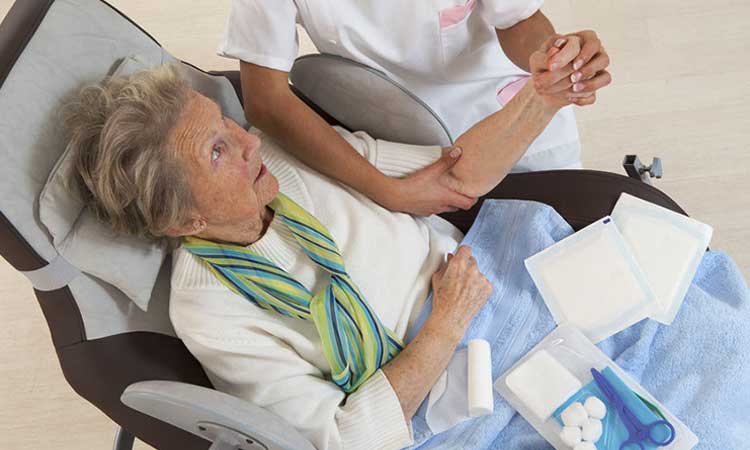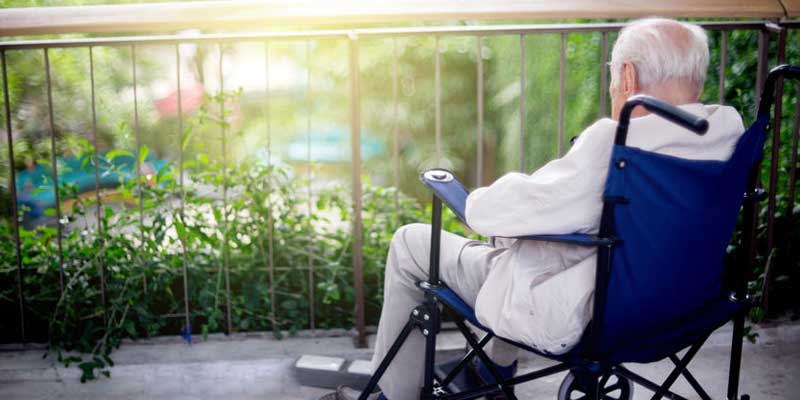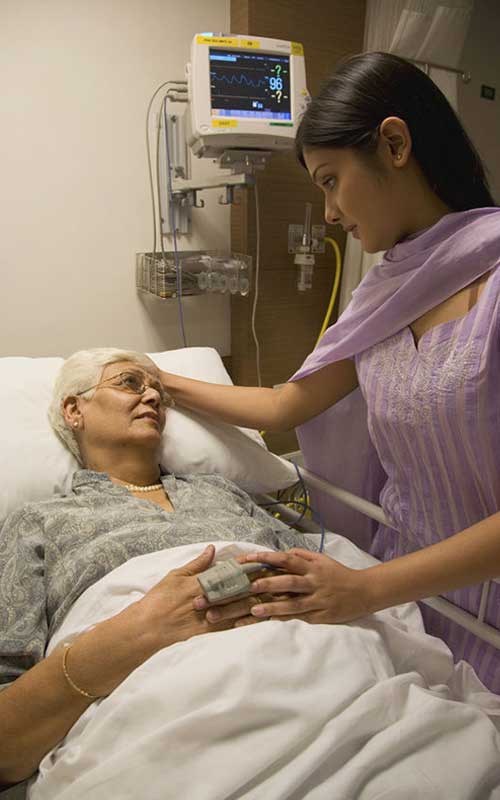 Joy, frustration, irritation, adjustment, finally happiness! Getting your parents to move in with you is a tough proposition. When they finally agree to move in, it requires a change in the mindset of everyone. The initial euphoria on both sides slowly moves through difficult periods of adjustment leading both sides to question the decision. But if you persevere and remain true to the reason as to why you want them to be with you, it is very rewarding in the end. It is far more difficult for our parents to adjust since it means giving up ostensibly their independence. Giving the limited space in our homes, it also means giving up prized possessions so as to accommodate everyone. It also meant making the home more secure, safer and comfortable for seniors.
Joy, frustration, irritation, adjustment, finally happiness! Getting your parents to move in with you is a tough proposition. When they finally agree to move in, it requires a change in the mindset of everyone. The initial euphoria on both sides slowly moves through difficult periods of adjustment leading both sides to question the decision. But if you persevere and remain true to the reason as to why you want them to be with you, it is very rewarding in the end. It is far more difficult for our parents to adjust since it means giving up ostensibly their independence. Giving the limited space in our homes, it also means giving up prized possessions so as to accommodate everyone. It also meant making the home more secure, safer and comfortable for seniors.
Many conflicts arise during the initial phase – things to keep and throw away, finance, medical, the list goes on. When there are kids involved, the demands that are placed on us as parents often lead to what we perceive as interference from our parents. To them, we are still their kids who need to be spared physical and emotional demands. This often makes them intervene directly in delicate situations which make the grandchildren resent them and us. They miss their independence and their life and substitute that with trying to be a part of what happens at home. They constantly tell us when to be home, what to cook, how to buy our groceries and how to save. The conflict arises in how we raise our kids because of very different schools of thought about food, schooling and discipline.
Three generations of mood swings happen at the same time – old age, menopause and teenage. And you have to deal with the aftershocks. You navigate your way through treacherous waters filled with obstacles.
After you successfully navigate your way through these treacherous waters and lead your family successfully, it is richly rewarding to see your parents by your side through the joys and sorrows of everyday life. At the end, I am happy they are with me.
 What is home health care?
What is home health care? Though this may sound pithy, it is true that old people are like children. And sometimes, the older they get, the more child-like and/or childish they become. While this can be endearing at times, it can also be very frustrating and annoying. Not to mention, difficult to manage.
Though this may sound pithy, it is true that old people are like children. And sometimes, the older they get, the more child-like and/or childish they become. While this can be endearing at times, it can also be very frustrating and annoying. Not to mention, difficult to manage. Most elderly ladies, especially in South India, have worn nothing but sarees all their lives. While the saree is an elegant dress, it is quite a handful to drape, even for a normal person. But to have to drape it on another person, that too someone who is confined to their bed is not only tedious but also difficult to manage for multiple reasons. Just imagine having to change the saree every time there is a diaper ‘accident’ and you will understand some of the problems faced in such situations.
Most elderly ladies, especially in South India, have worn nothing but sarees all their lives. While the saree is an elegant dress, it is quite a handful to drape, even for a normal person. But to have to drape it on another person, that too someone who is confined to their bed is not only tedious but also difficult to manage for multiple reasons. Just imagine having to change the saree every time there is a diaper ‘accident’ and you will understand some of the problems faced in such situations.
 The Probus Club of Chennai received the Humanitarian Award from the Thakkar Bapa Vidyalaya Samithi in recognition of the yeoman service that they did during the floods in Chennai in the year 2015. The award was presented by Hon’ble Vice President of India, Shri Venkaiah Naidu and received by Probian President RT Namasivayam.
The Probus Club of Chennai received the Humanitarian Award from the Thakkar Bapa Vidyalaya Samithi in recognition of the yeoman service that they did during the floods in Chennai in the year 2015. The award was presented by Hon’ble Vice President of India, Shri Venkaiah Naidu and received by Probian President RT Namasivayam. I recently took my mother-in-law to Mumbai for a family wedding. While she can walk a bit, she finds standing for extended periods and walking long distances very painful, so I ordered wheelchair support for her at the time of check-in.
I recently took my mother-in-law to Mumbai for a family wedding. While she can walk a bit, she finds standing for extended periods and walking long distances very painful, so I ordered wheelchair support for her at the time of check-in.
 A strength-based approach rather than a deficit-based approach towards ageing could well have an empowered senior citizen stepping into a journey of a “well-being” experience.
A strength-based approach rather than a deficit-based approach towards ageing could well have an empowered senior citizen stepping into a journey of a “well-being” experience.